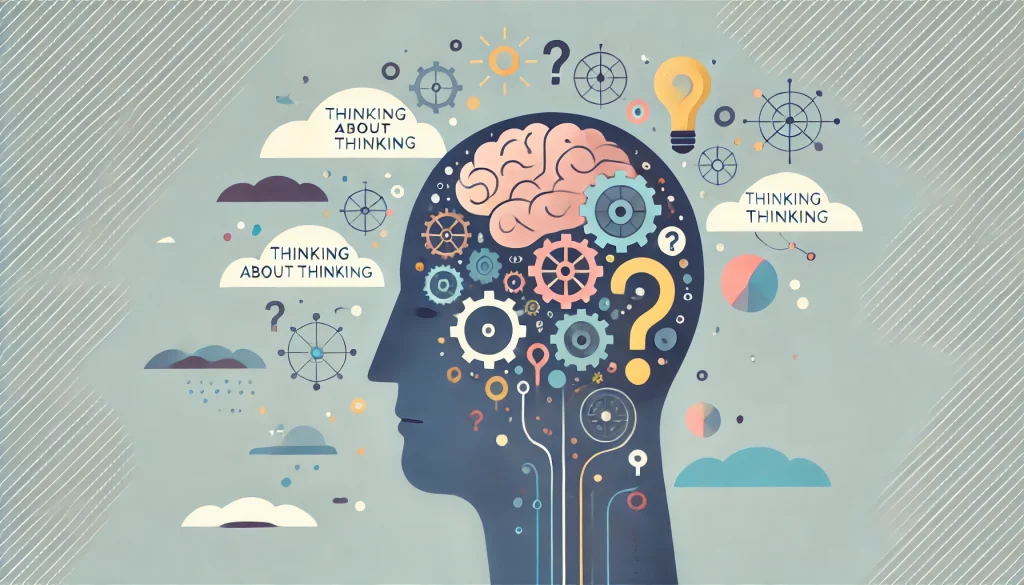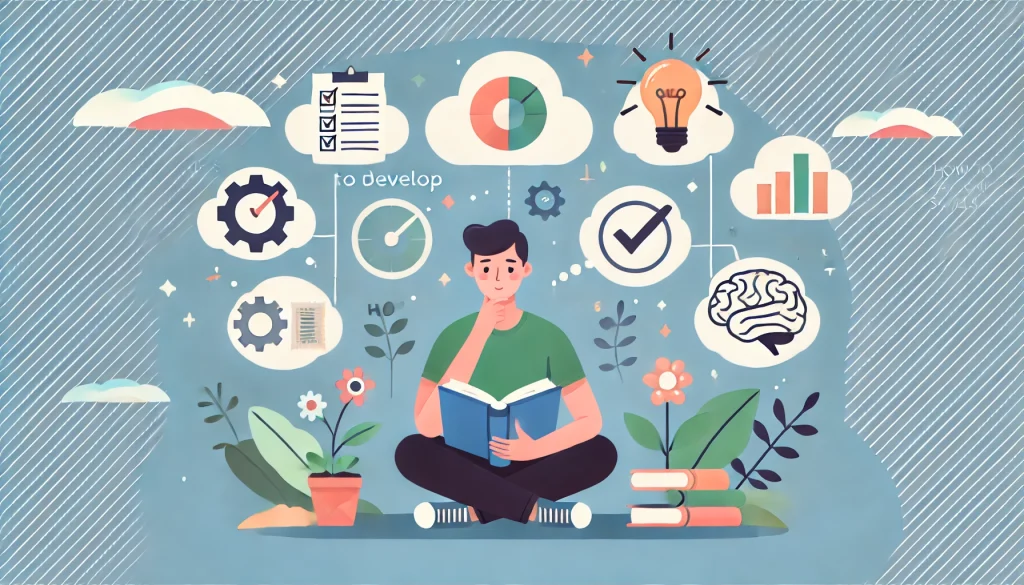Metacognition is a concept that plays a crucial role in how we learn and solve problems. It’s often defined as “thinking about thinking,” but what does that really mean? By delving into the definition of metacognition, this article aims to explain its components, importance, and application in education and everyday life. While there are clear strategies to improve metacognitive thinking, it’s important to acknowledge that metacognition theory is still evolving, and there is much more to learn about this complex topic.

What is Metacognition?
To define metacognition, it’s helpful to break it down into two key elements: metacognitive knowledge and metacognitive regulation. The first refers to our awareness of thinking processes and strategies, while the latter involves controlling or adjusting those processes to improve outcomes. In simpler terms, metacognition is thinking about thinking—an ongoing process of planning, monitoring, and evaluating how we think and learn.
The meaning of metacognition also touches on how it influences learning efficiency. People who are aware of their thinking strategies are better able to adapt and improve. However, more research is needed to fully understand the extent of these benefits across different learning environments.
Components of Metacognition
Metacognition can be divided into metacognitive knowledge and metacognitive regulation. These can be further broken down as follows:
- Metacognitive Knowledge: This includes declarative knowledge (what you know), procedural knowledge (how you do things), and conditional knowledge (when and why to apply certain strategies).
- Metacognitive Regulation: This involves planning, monitoring, and evaluating one’s thought process. For example, when solving a problem, a person might reflect on their approach and make adjustments as needed. These metacognitive strategies are essential in guiding learning processes.
While some experts believe that these components are well-defined, there is still debate about how they interact and influence different types of thinking. Thus, the metacognition definition may evolve as the field advances.
Why is Metacognition Important?
Metacognitive skills are often associated with better problem-solving and decision-making. People who are able to reflect on their thinking can identify what works, what doesn’t, and adjust accordingly. This can lead to more efficient learning, improved academic performance, and even better emotional regulation.
it’s important to note that the exact impact of metacognition may vary depending on individual differences and context. While some researchers point to its significant role in education, others argue that more research is needed to understand its full implications.
How to Develop Metacognitive Skills
Developing metacognitive skills can enhance one’s ability to think critically and adapt. A few key metacognitive strategies include:

- Self-questioning: Ask yourself what you understand and what you don’t.
- Reflective journaling: Writing down your thoughts helps in monitoring learning.
- Goal-setting: Plan what you want to achieve and how you’ll measure success.
These strategies are likely to improve metacognitive awareness, but they may not work equally well for everyone. More research is required to determine the most effective ways of fostering learning metacognition across different populations.
Metacognition in Education
The application of metacognition in education is one of the most researched areas. Teachers who emphasize reflective thinking, self-assessment, and strategic learning are more likely to see improvement in student outcomes. Some experts suggest that metacognitive thinking can help students learn how to learn, making them more independent and effective learners.
However, there are limitations to how many metacognitive skills can be taught, especially since learners’ abilities to apply these strategies vary. It’s possible that the effectiveness of metacognitive strategies depends heavily on individual differences in cognitive abilities, motivation, and prior knowledge.
Challenges and Misconceptions about Metacognition
One of the challenges in developing metacognitive skills is that many people are unaware of their thinking processes, or they may be overconfident in their abilities. Some assume that metacognition is only for advanced learners or experts, but even young learners can benefit from metacognitive awareness.
Moreover, metacognition theory is not without its critics. Some researchers argue that there is still much we don’t know about how metacognition works, particularly when it comes to its long-term effects on learning. As new data become available, our understanding of what is metacognition and how it influences learning may change.
Metacognition Beyond the Classroom
While much of the research focuses on metacognition in education, it’s also highly relevant outside of formal learning environments. Metacognitive skills are valuable in everyday life, from making career decisions to solving personal problems. Reflecting on one’s own thinking can lead to more thoughtful decision-making and better outcomes in various aspects of life.
However, it’s important to recognize the limitations of current knowledge. While metacognitive strategies can certainly help in some situations, they are not a guaranteed solution for all issues. More research is needed to understand how these skills transfer to non-academic contexts.


